When we received Zach's first set of orders to Fort Drum, New York, I had no choice but to quit my job. I had all intentions of finding a new one once we moved but God had different plans for me. Fast forward 4 years later and I'm still not employed in a traditional setting, leaving most of our bills to be paid solely from his income.
When we first got married, I had no idea what I was doing. I mean, I had bills of my own before but now we had other expenses. Utilities, cable, internet, etc. How would I manage at all? And would we be able to survive on only one income? Would we live paycheck to paycheck or could we afford to do fun things?
I've done this a few different ways in the past and I'm still trying to find a system that works for me. And since it's 2015, I've decided to try something new!
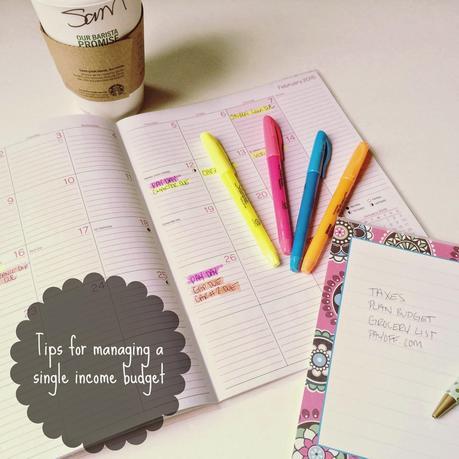
But here are the major ways I stay on track while managing the budget and paying the bills on a single income. This may not work for everyone and you may do things different, so this is just my experience into managing our budget:
Auto pay: This is my best friend. I've literally set every single one of our payments on an auto pay feature so that I don't even have to think about it. If the bill you're paying doesn't offer it (most do now), you can usually set it up through your bank. Late fees? No thanks. Auto pay to the rescue.
Allocate by paycheck: since we are a one income family right now, we have to pay really close attention to our budget. We know that we get paid twice a month, so we break the bills up by that. Bills A-D come out the first paycheck, and bills E-G come out the second paycheck. I try to keep them as even as possible; if the due date didn't allow me to do that, I had them switch it. Some places will and some won't, but it doesn't hurt to check the website or ask!
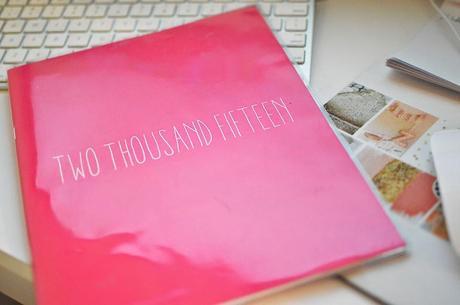
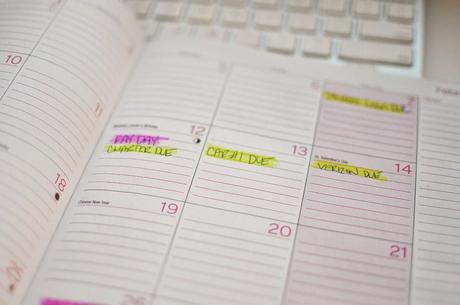
Write it out: I bought this planner specifically for bills. It helps to see how much money and when the payment comes out. Then I add a column on the side with the money that is left after the bills are paid and decide what that will be used for. Add more to savings? Put towards a credit card? Or fun stuff!
Pay more than the minimum payment: I'll admit, I've gotten carried away with credit cards at times. College was super expensive; groceries, books, etc, and I also thought it was cool to "have money" when really, I was just charging my credit card! But if I learned anything, it's always pay more than the minimum payment if you can't afford to pay off the entire balance. Paying only the minimum payment means paying A LOT longer due to the interest building.
Plan your grocery list (and don't go to the grocery store hungry): You think I'm kidding, but it's a proven statistic that you always buy more when you're hungry! Just kidding, but it makes sense. I only go shopping twice a month (after each paycheck) and plan meals out for two weeks. This may sound a little crazy but I leave some days blank or a couple days for simple meals; ie breakfast for dinner, sandwiches, etc. Then, I plan my ingredient list based off of that. This way, I know exactly what I need when I go to the store. No extra items in the cart=not spending money on pointless things. Side note: go alone; husbands and kids always add more to the cart.
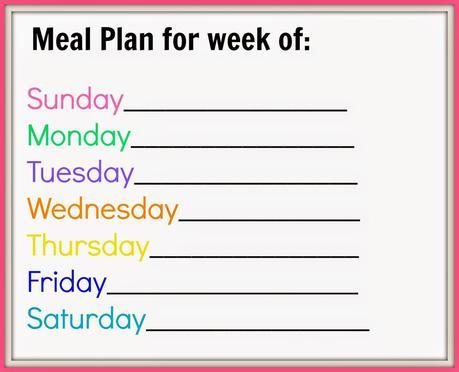
I made this to help you get organized! Print it for free here
Bargain shop: There's a difference between bargain shopping for things you need and just buying things because they're a good deal. I happen to be totally guilty of the latter. But if I buy it, you bet your bottom dollar I'm going to use it...a lot. But this can be super helpful on certain things like kids clothing or clothing for yourself. If you're stuck on whether or not you really need it or should buy it, think of how many groceries you could buy for that money. Or how many hours you would have to work to buy it. That will really put things into perspective. I also make an effort to take things to consignment stores once in awhile and get some cash back :)
Pay off credit cards first... then save: It's great to have a savings, but if you're torn between having a savings and paying off credit cards, work towards the credit cards. The interest just keeps building and you're in turn paying more. It's wonderful to have a savings so if you can, put something in that every month. But your focus should be paying off credit cards first.
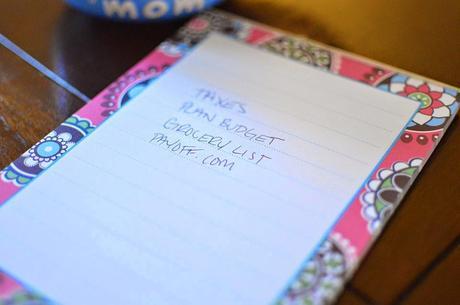
Get help: Credit card debt is no fun. Do you know the average credit card debt? $15,611 (source). And while you may not be in this much debt, having any debt can be a stressor. Payoff.com offers you a solution. Payoff wants to help you get rid of your debt and move on with your life.. ain't nobody got time for that, right?! Here's how it works:
You enter some info (nothing personal), and they give you a quote for a loan designed to becoming debt free. There's also a "chat" box to help you if you need further instruction!
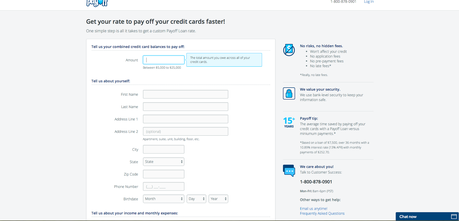
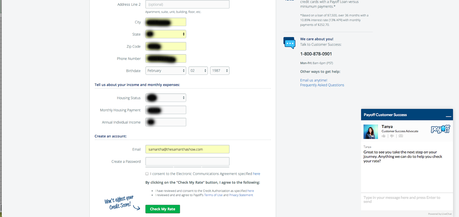
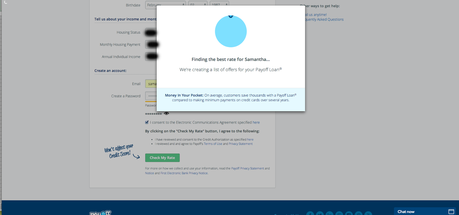
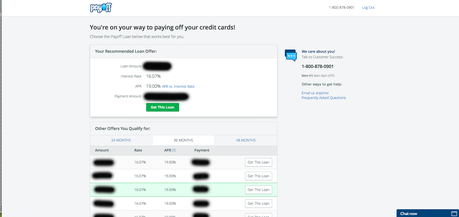
Payoff was specifically formed to help customers pay off credit card debt in the easiest, safest, and most empowering way possible. They're in the YOU business and want to help you succeed and move forward with your dreams. Cool, huh?
Surviving one a single income is definitely a challenge, but it can be done. A small lifestyle change may be required, as well as having your priorities straight. But we are still able to live our lives the way we want to without running ourselves into the ground in debt.
Saving has never been my strong suit, but I'm making it a priority this year. Whether I cut out one of my tri-weekly Starbucks trips or give myself a clothing allowance, I plan to be a lot better about it this year than last year! Deployment didn't help; we did and bought a lot of extra things before he left but now that he's home, it's time to refocus our energy on saving and budgeting. Living debt free is something we certainly want to achieve in the next few years and want to make a conscious effort to get to that point.
How do you stay on a budget? Any tips you would recommend??


